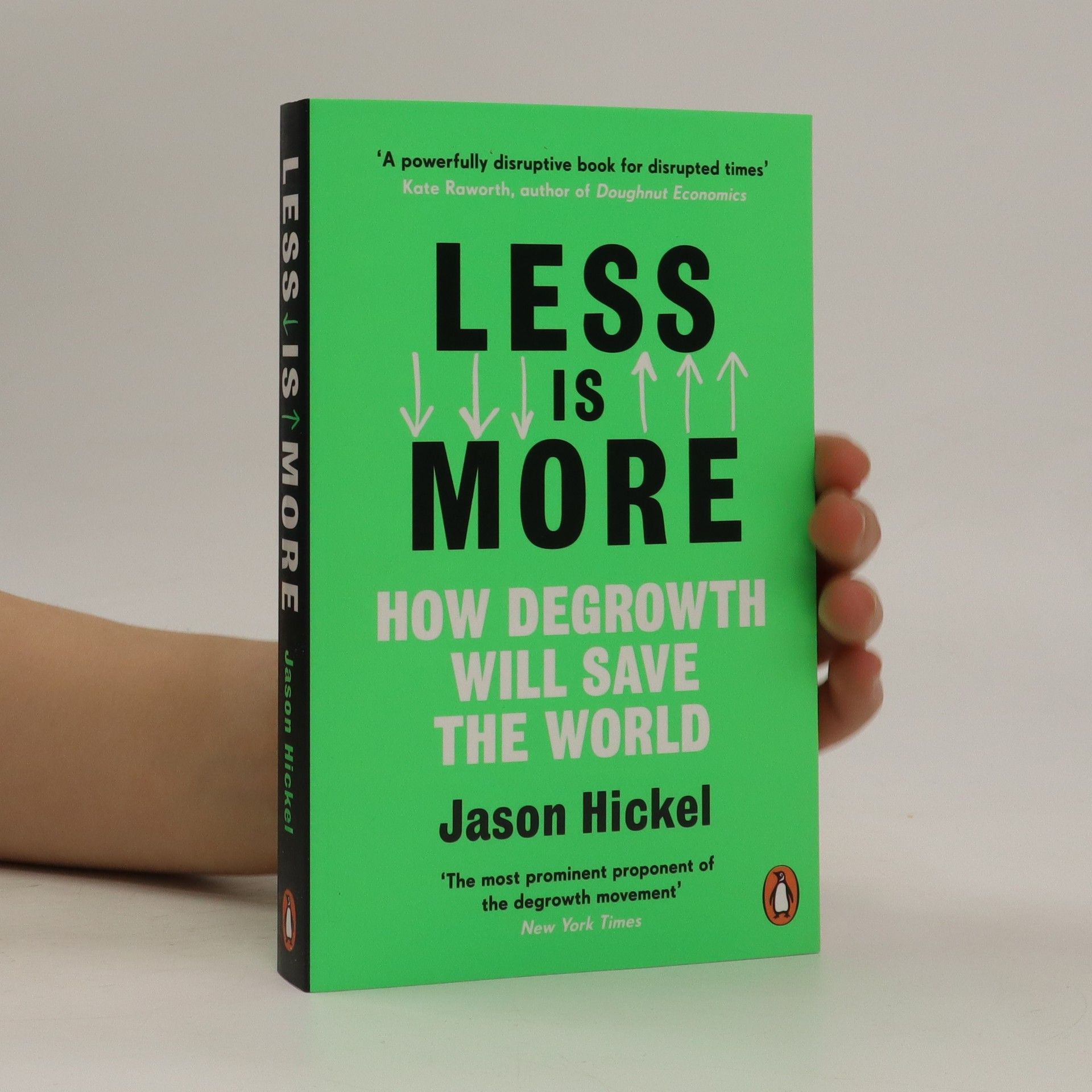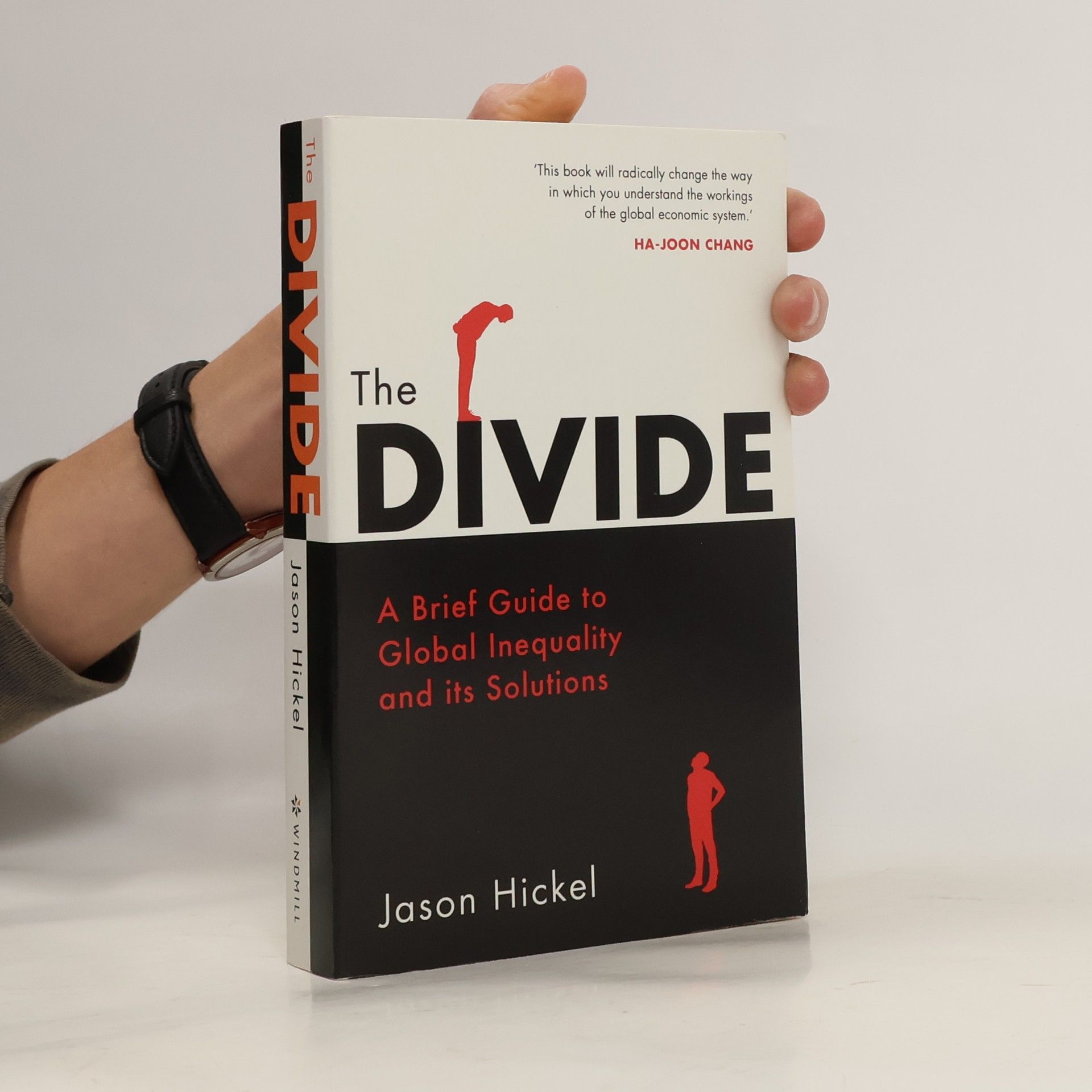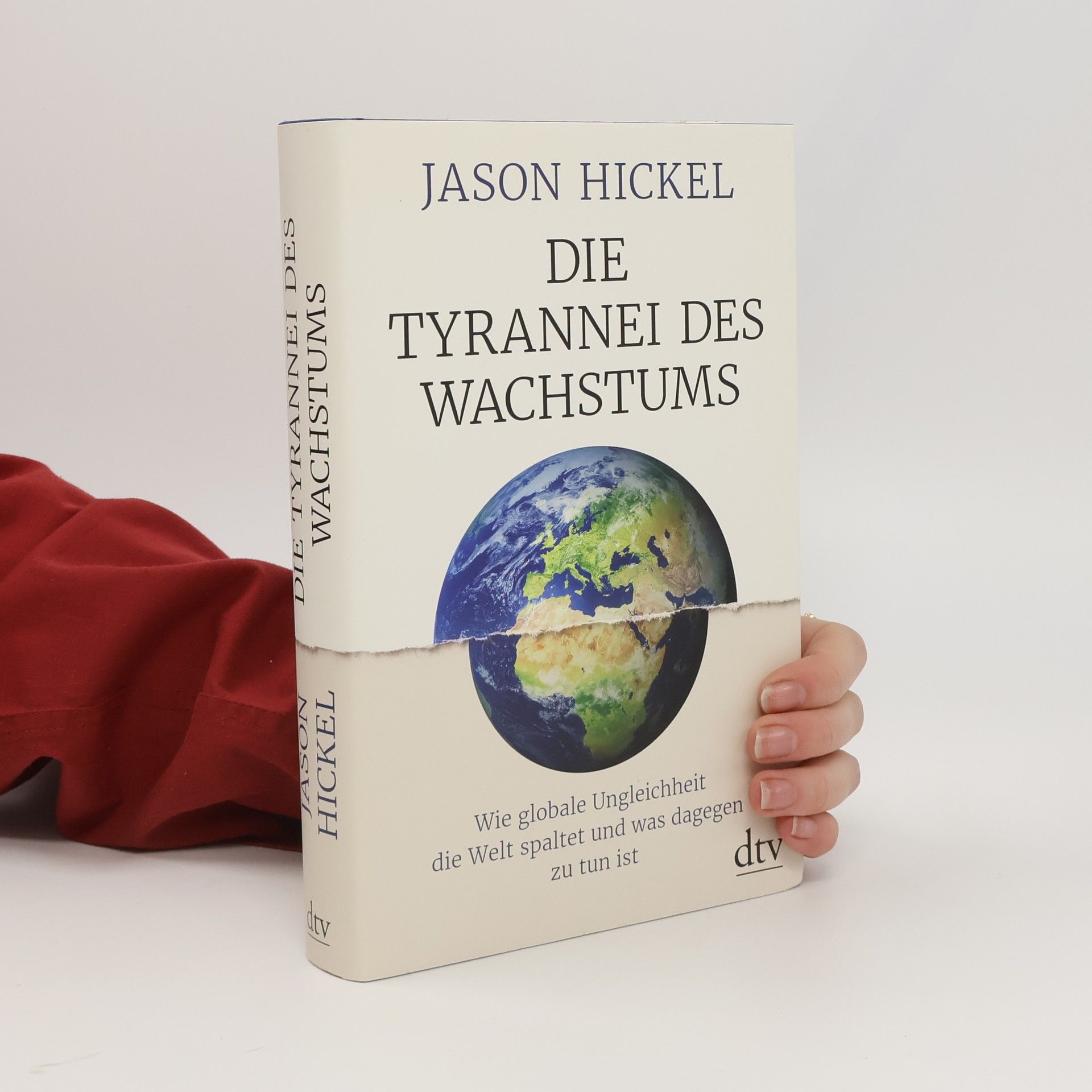There's no understanding global inequality without understanding its history. In The Divide, Jason Hickel brilliantly lays it out, layer upon layer, until you are left reeling with the outrage of it all. Kate Raworth, author of Doughnut Economics
Jason Hickel Libros







The Divide. A Brief Guide to Global Inequality and its Solutions
- 347 páginas
- 13 horas de lectura
The richest eight people control more wealth than the poorest half of the world combined. Today, 60 per cent of the world's population lives on less than $5 a day. Though global real GDP has nearly tripled since 1980, 1.1 billion more people are now living in poverty. For decades we have been told a story; that development is working, that poverty is a natural phenomenon and will be eradicated through aid by 2030. But just because it is a comforting tale doesn't make it true. Poor countries are poor because they are integrated into the global economic system on unequal terms, and aid only helps to hide this.
The Divide: Global Inequality from Conquest to Free Markets
- 352 páginas
- 13 horas de lectura
The book challenges the prevailing narrative surrounding global poverty, arguing that it is not merely a result of natural factors like climate or culture. Instead, it critiques the simplistic solutions of aid and policy changes, suggesting that these approaches fail to address the deeper systemic issues that keep billions in poverty. By examining the complexities of economic disparity, it calls for a reevaluation of how we understand and tackle poverty on a global scale.
Less is more: how degrowth will save the world
- 320 páginas
- 12 horas de lectura
The world is awakening to the reality of climate breakdown and ecological collapse, necessitating a shift from a philosophy of domination and extraction to one rooted in reciprocity with our planet's ecology. This wake-up call highlights the urgent need for degrowth as a solution to reverse the current crisis and create a sustainable future. By illuminating the ecological breakdown and the systems causing it, the author demonstrates how we can realign our economy with the living world and foster a thriving society for all. This moment presents an opportunity for change, but immediate action is essential. The book is praised as a masterpiece that spans centuries and continents, connecting diverse academic disciplines and events in a compelling narrative. It emphasizes the importance of recovering the commons and decolonizing nature and cultures as vital steps toward a hopeful future. Critics argue that only degrowth can prevent climate breakdown, challenging ecomodernist fantasies of "green growth." The author provides not just a vision of a different world but also practical tools for achieving it. This work is deemed essential reading for anyone interested in the implications of living in the Anthropocene and offers a clear path to a sustainable future by addressing systemic flaws and cultural beliefs that must be transformed.
Exploring Degrowth
- 224 páginas
- 8 horas de lectura
An introduction to the degrowth movement worldwide
To nie jest książka o nieuniknionej zagładzie. To książka o nadziei. Łącząc wiedzę z różnych dziedzin – historii, ekonomii, antropologii, filozofii i nauk ścisłych – Jason Hickel kreśli błyskotliwą analizę kapitalizmu (z odświeżającym spojrzeniem na jego historię) i proponuje wizję alternatywnego rozwoju, zrywającego z obłędem ciągłego wzrostu. Pisze o tym, jak przejść od gospodarki zorganizowanej na zasadzie dominacji i eksploatacji do takiej, która opiera się na globalnej sprawiedliwości i wzajemnej wymianie korzyści ze światem przyrody. Pokazuje słabość modnych i uznawanych za progresywne idei, jak choćby Nowego Zielonego Ładu. Co najważniejsze jednak, proponuje wiele konkretnych rozwiązań, które pomogłyby zbudować postkapitalistyczną gospodarkę. Wiele z nich jest już – w mikroskali – testowanych na różnych polach, nawet w naszym otoczeniu. Książka Hickela jest jak haust świeżego powietrza – pozwala zacząć myśleć w nowy sposób o problemach, z których dotąd nie widzieliśmy wyjścia.
Méně je více - Jak nerůst zachrání svět
- 360 páginas
- 13 horas de lectura
Planeta má omezenou kapacitu. Je načase tomu uzpůsobit ekonomiku. Klimatická a environmentální krize mají jasné příčiny. Nadbytek skleníkových plynů v atmosféře, odlesňování, ztrátu biodiverzity, intenzivní rybolov, zesilující zpětné smyčky globálních systémů. A i u těchto jevů je znám původce: globální ekonomický systém postavený na myšlence neustálého růstu. Jenže jak lze neomezeně růst na omezeném planetárním prostoru? Toto je možná ta největší politická výzva, kterou změna klimatu lidstvu klade: nikoli vynalézání inovativních a zelených technologií, nikoli větší ochrana přírody, ale transformace světového hospodářství. Podstata této výzvy spočívá v její jednoznačnosti. Je třeba zpomalit. Nerůst. Antropolog Jason Hickel v knize Méně je více zkoumá, jak této nelehké výzvě dostát. Jak nerůst, a přitom neohrozit důstojné živobytí? Jak by vlastně měl vypadat život v takové společnosti? Je to vůbec možné? Jsou to těžké otázky, které ovšem nesnesou odklad.
To nie jest książka o nieuniknionej zagładzie. To książka o nadziei. Łącząc wiedzę z różnych dziedzin historii, ekonomii, antropologii, filozofii i nauk ścisłych Jason Hickel kreśli błyskotliwą analizę kapitalizmu (z odświeżającym spojrzeniem na jego historię) i proponuje wizję alternatywnego rozwoju, zrywającego z obłędem ciągłego wzrostu. Pisze o tym, jak przejść od gospodarki zorganizowanej na zasadzie dominacji i eksploatacji do takiej, która opiera się na globalnej sprawiedliwości i wzajemnej wymianie korzyści ze światem przyrody. Pokazuje słabość modnych i uznawanych za progresywne idei, jak choćby Nowego Zielonego Ładu. Co najważniejsze jednak, proponuje wiele konkretnych rozwiązań, które pomogłyby zbudować postkapitalistyczną gospodarkę. Wiele z nich jest już w mikroskali testowanych na różnych polach, nawet w naszym otoczeniu. Książka Hickela jest jak haust świeżego powietrza pozwala zacząć myśleć w nowy sposób o problemach, z których dotąd nie widzieliśmy wyjścia.
»Ein Buch voller Fakten, Zorn und Herzblut.« Anthony Loewenstein Seit Dekaden hören wir, Entwicklung hilft: Die südlichen Länder der Welt schließen zum reichen Norden auf, die Armut hat sich in den vergangenen 30 Jahren halbiert, bis zum Jahr 2030 ist sie verschwunden. Das ist eine tröstliche Geschichte, die von Politik und Wirtschaft gerne bestätigt wird. Aber sie ist nicht wahr. In Wirklichkeit hat sich die Einkommenslücke zwischen Nord und Süd seit 1960 verdreifacht, 60 Prozent der Weltbevölkerung verdienen weniger als 4,20 Euro am Tag. Armut ist kein Naturphänomen, sie wird gemacht. Der Autor entlarvt die Wachstumsideologie und zeigt auf, dass Armut ein politisches Problem ist, für das radikale politische Lösungen erforderlich sind. Voraussetzung ist eine Revolution im Denken.
